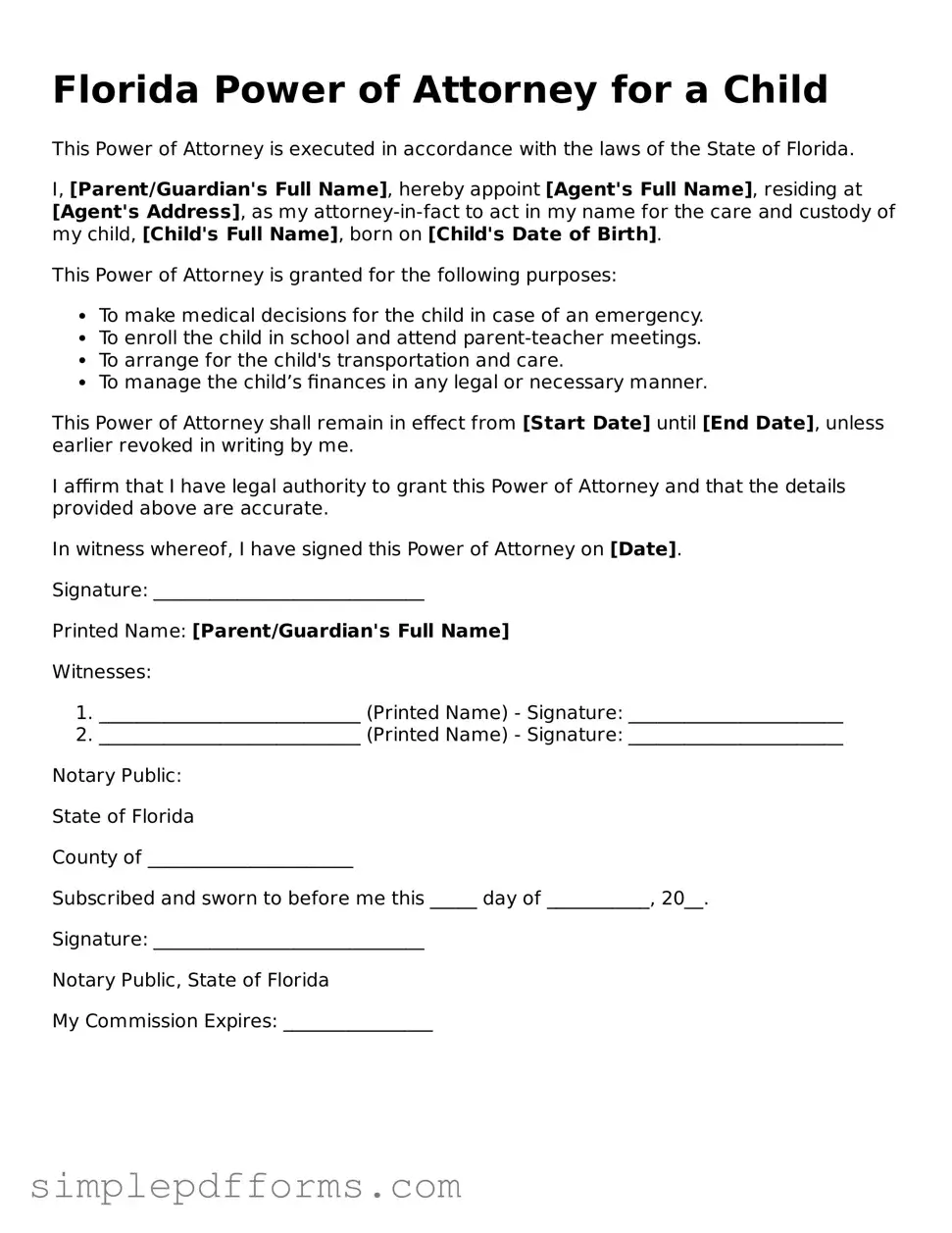Attorney-Verified Power of Attorney for a Child Document for Florida State
The Florida Power of Attorney for a Child form is a legal document that allows a parent or guardian to designate another adult to make decisions on behalf of their child. This form is particularly useful in situations where the parent or guardian is temporarily unavailable, such as during travel or medical emergencies. By granting this authority, the designated individual can act in the best interests of the child, ensuring their needs are met promptly.
Open Power of Attorney for a Child Editor Now

Attorney-Verified Power of Attorney for a Child Document for Florida State
Open Power of Attorney for a Child Editor Now

Open Power of Attorney for a Child Editor Now
or
Get Power of Attorney for a Child PDF Form
Your form is waiting for completion
Complete Power of Attorney for a Child online in minutes with ease.